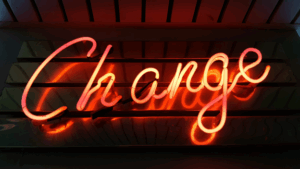Together, We Can Change How We Work (and Live)

Guest Author: Laura Putnam, MA
“If you want to go fast, go alone. If you want to go far, go together.” – African Proverb
This month I officially kicked off an exciting new partnership with the Workplace Wellbeing Initiative of the Global Wellness Institute with a seven-part LinkedIn Live series called Wellbeing at Work.
We launched the series with an incredible conversation featuring none other than Jennifer Moss, award-winning journalist and author of The Burnout Epidemic and Why Are We Here? If you missed the conversation, you can watch it here.
She challenged us to stop chasing perks and start focusing on what really drives wellbeing at work: purpose, agency, fairness and altruism.
Here are three takeaways from our conversation:
- Follow the data
The research is loud and clear. Wellbeing isn’t a “nice-to-have” — it’s a must-have for retention, performance and long-term sustainability. The data shows that flexibility, fairness and autonomy matter. - Kindness is culture
Want to shift the vibe on your team? Buy someone a coffee. Ask what made them smile today. Create moments for human connection. As Jen reminded us, altruism is one of the most underrated drivers of wellbeing. It’s free. And it works. - Give yourself grace
There’s no perfect playbook for what we’re navigating. Not for leaders. Not for teams. Especially with all the external factors we’re dealing with daily. Real culture change starts with small, intentional actions, one micro-moment at a time.
We also unpacked why burnout isn’t just an individual issue (hint: it’s the water, not the fish), how generational divides are stalling progress, and why it’s more important than ever to ask: Why are we here?
Conclusion:
Wellbeing at work isn’t just possible, it’s essential. We all deserve the opportunity to thrive. And it starts with leaders who are ready to think differently and act intentionally. This is just the beginning. Change doesn’t happen overnight, but it starts with conversations like this one, and the courage to keep going.
What’s Ahead
This conversation set the tone for the whole series, and you won’t want to miss what’s next. Mark your calendars for the following guests:
July 23: Simone Stolzoff, TED speaker and author of “The Good Enough Job,” will reframe our relationship with work and success. RSVP here: https://lnkd.in/g6jNUwVV
August 6: Zach Mercurio, Ph.D., researcher and author of “The Power of Mattering,” will show us how to tackle the hidden epidemic of insignificance. RSVP here: https://lnkd.in/gghgiHVC
Save the Date
Registrations will open soon for the rest of the series. Plan to follow the Workplace Wellbeing Initiative LinkedIn page for announcements.
➡️ September 24: Newton Cheng, Director of Health and Performance at Google, will offer a powerful lens on integrating performance with humanity.
➡️ October 22: David L. Katz, MD, MPH, a leading public health expert, will bring a systems-level perspective to wellbeing and leadership.
➡️ November 12: Dr. Kerry Burnight, PhD, gerontologist, connection expert and author of “Joyspan,” will show us how to design teams and workplaces that reduce isolation and increase meaning.
➡️ December 10: Jen Fisher, former Chief Wellbeing Officer at Deloitte and author of “Work Better Together,” will offer key insights on hope as a strategy.
Please join us for one or all of the remaining events of this special LinkedIn Live series. Together, we have the power to shift the tide and make a meaningful impact on workplace wellbeing, one conversation and one action at a time.
ABOUT LAURA PUTNAM
Laura Putnam is a workplace wellbeing expert, author of the bestselling book, Workplace Wellness That Works, former CEO of Motion Infusion and now Chief Learning Officer at Upli. Over the past 17 years, she’s helped over 500 organizations reimagine wellness by connecting it to culture and leadership. Subscribe to Laura’s newsletter to get 4 tangible ideas each month to infuse wellbeing at work and at home.
**Disclaimer**
The blog submissions featured on this site represent the research and opinions of the individual authors. The Global Wellness Institute and the Workplace Wellbeing Initiative are not responsible for the content provided. The views expressed are solely those of the authors and do not necessarily reflect the official policy or position of the Global Wellness Institute or the Workplace Wellbeing Initiative. Readers are encouraged to consult with a qualified healthcare professional for specific health concerns.























































